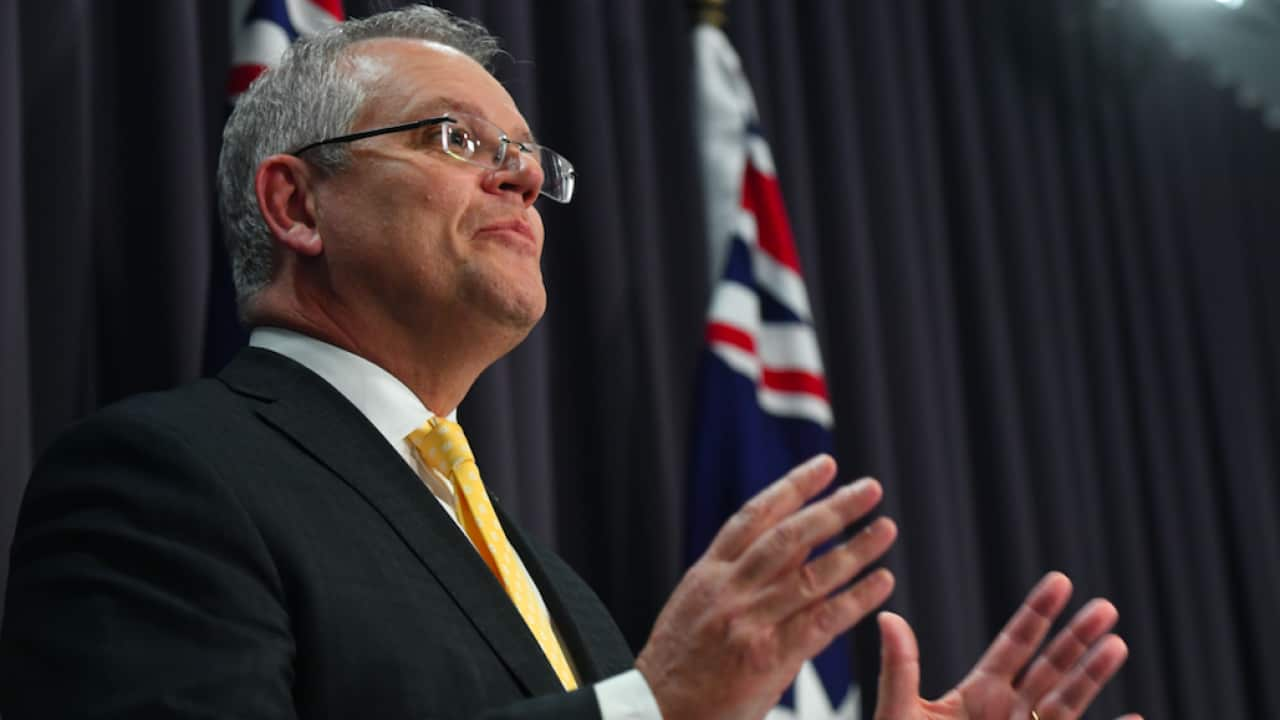Australia's overseas migration intake is expected to shrink by more than 85 per cent on 2018-19 levels next financial year due to widespread travel bans brought on by the coronavirus.
Addressing the media following Friday's national cabinet meeting, Prime Minister Scott Morrison said the impact of the coronavirus on migration was expected to be "quite significant".
"On the 2018-19 year for net overseas migration, we're expecting just over a 30 per cent fall in 2019-20, the current financial year. And in 2020-21, an 85 per cent fall-off those 2018-19 levels as well," Mr Morrison told reporters.
In the previous year, Australia's population grew by 239,600 from net overseas migration, according to . Net overseas migration numbers take into account how many people enter Australia and stay for more than 12 months, compared to how many people leave the country for the same period.
With international border closures expected to be in place for at least another three to four months, the federal government expects net migration to fall to just 36,000 in 2020-21 - the lowest number in more than 40 years.
University of Sydney global migration expert Anna Boucher said she believed the "very significant" prediction was the largest drop in net overseas migration in recent history.
But, she added, it would be difficult to predict the exact numbers until it is known how many people are likely to remain in the country longer than they would have otherwise due to the crisis, such as temporary migrants who will take advantage of the government's visa extension policies.
"We need to know their intention over the next period to be able to measure that. There are some people who would have arrived just as COVID-19 hit and they will take advantage of the various visa extensions ... so they may stay longer," she said.
Either way, the fall is likely to have a , with overseas migration playing a key role in economic growth.
"The economic implications could be significant. While border closure is important for health during COVID19, the budget will take an enormous hit," Australian National University demographer Liz Allen said.
"The budget forward estimates are based on net overseas migration in excess of trend levels. Demographically, this could spell trouble if fertility rates fall and do not recover post-COVID-19."
Meanwhile, more than 300,000 temporary visa holders have already left Australia since the start of the year, acting Immigration Minister Alan Tudge said last week.
Mr Tudge said the "vast majority" of those were international students, .
Australia's lucrative international education market brings approximately $39 billion per year into the economy, making it our fourth-largest industry.
Associate professor Boucher said migration was a key economic driver for a number of reasons.
"Those migrants work, they pay tax, most of them are not a drain on the welfare or health system. They are net contributors, not net takers, unlike Australians," she said.
"Because temporary migration comprises the vast bulk of migration into Australia ... closing all that migration off is going to have a massive effect."
While Australia seems to have controlled the virus, with only about 1,000 active cases across the country as of Friday, uncontrolled international outbreaks will likely mean travel bans remain in place even if national social distancing restrictions are rolled back.
Chief medical officer Brendan Murphy flagged last week that lifting the border closures would be the "final step" in returning to normal, with no changes to the policy expected for at least three months.
"I cannot, in the foreseeable future, see the international risk to be such that we would do a material change in the border measures,” he said. "[But] the national cabinet and prime minister has asked us to review them on a regular basis."
People in Australia must stay at least 1.5 metres away from others. Check your state’s restrictions on gathering limits. Testing for coronavirus is now widely available across Australia.
If you are experiencing cold or flu symptoms, arrange a test by calling your doctor or contact the Coronavirus Health Information Hotline on 1800 020 080. The federal government's coronavirus tracing app COVIDSafe is available for download from your phone's app store.
SBS is committed to informing Australia’s diverse communities about the latest COVID-19 developments. News and information is available in 63 languages at .











